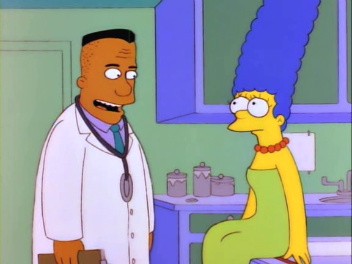How Planned Parenthood Helped Save Me

The first time I walked into a Planned Parenthood on a busy Brooklyn street, I was terrified. I was in my early twenties; I had very little money and no health insurance, and I had a Lady issue. I didn’t know where else to go but I also had no idea what to expect.
In college, I had been able to visit the Health Center, consult a great doctor, and get birth control for $10 a month. Then I was cast out onto the pitiless shores of the real world, and into a low-paying office full of profane blowhards that would reward me with benefits only if I managed to hang on for three or four months. I hung on for a year before switching to another terrible, low-paying job, which lasted six months. Then I was on my own again, like so many people my age: between gigs, with mounting desperation, no insurance, and the equivalent of three orange peels in savings.
The woman on the phone when I called told me of course I could come in for an appointment, that it didn’t matter that I didn’t have coverage, and that I could pay on a sliding scale. But that was assuming I made it through the door. What if there were protesters outside with flames instead of eyes, shaking signs at me calling me a Murderer? What if there were bombs planted in the waiting room? What if the Ben Folds Five song “Brick” played dolefully on repeat the entire time while fourteen-year-old girls on plastic chairs cried in their mothers’ laps?
None of those fears was borne out. The clinic I visited was situated on a high floor of an anonymous downtown office building indistinguishable from the ones on either side; walking in was much like going to the dentist, only, at the last minute, I had to pass through a metal detector. The waiting area was clean and Ben Folds Five-free. No bombs beneath the potted plants, either.
A woman next to the reception desk called me into her office to discuss billing and asked me about my income.
I gave her my stats: unemployed, looking for a new job. She ran them through a computer and told me I qualified for a New York State program that would cover all of my Lady needs gratis. I gawked at her. Really? She smiled back. “You bet,” she said. “I’ll get you all set up in the system, shall I?”
In minutes, it was done. She hadn’t merely saved me money, she had quelled a significant anxiety. I didn’t need to leap into whatever rotten job popped up next; I could wait, at least for a bit, until I found one that was a good fit, since at least the most important aspect of my health care would be covered.
At the time I wasn’t sure how to thank her, or the doctors and nurses I saw at that visit and the next one, who were all much kinder than I was worried they might be, considering how harried and underpaid they no doubt were. Then I realized that the best way would be to make donations as soon as I, once again, had means; and to defend Planned Parenthood robustly and in public whenever it came up as a vilified entity.
Though I went on to participate in marches and such, I took the first decision, especially, to heart. In fact, when Ben and I got married, we set up a charity registry, so that if people wanted, in lieu of gifts, they could make donations to a good cause. One of those causes was Planned Parenthood. In total, we and our guests raised almost a thousand dollars.
This comes to mind today because of a New York Times article about the ongoing GOP effort to defund Planned Parenthood, despite the fact that it is vital not primarily for people like me but for less privileged people in poor states, who often have greater need and fewer options.
Demand for tests and treatment is great, not just in this neighborhood beyond the French Quarter, but all over Louisiana. And clinics like this CrescentCare Health and Wellness Center need all the allies they can get — including the state’s two Planned Parenthood clinics, one here and one in Baton Rouge, which are now threatened with losing their public funds by Republicans in the state capital and in Congress. …
Neither clinic in this state — like nearly half of all Planned Parenthood centers — performs [abortions]. What the Louisiana Planned Parenthood clinics did do last year was administer nearly 20,000 tests for sexually transmitted infections, as well as providing gynecological exams, contraceptive care, cancer screenings and other wellness services for nearly 10,000 mostly low-income patients.
Part of the issue is that Planned Parenthood accepts Medicaid while many other clinics and doctors will not. Those other clinics are also already overwhelmed by the influx of patients who can finally seek medical treatment thanks to Obamacare.
Alabama has already gone ahead and defunded Planned Parenthood on the state level, so the organization is suing in Federal court.
Meanwhile, I’ll be donating to Planned Parenthood again and telling anyone who wants to hear: I never got an abortion there but I was grateful to receive excellent medical and personal treatment at a stressful time. Other people throughout the country deserve the same opportunity.
Support The Billfold
The Billfold continues to exist thanks to support from our readers. Help us continue to do our work by making a monthly pledge on Patreon or a one-time-only contribution through PayPal.
Comments